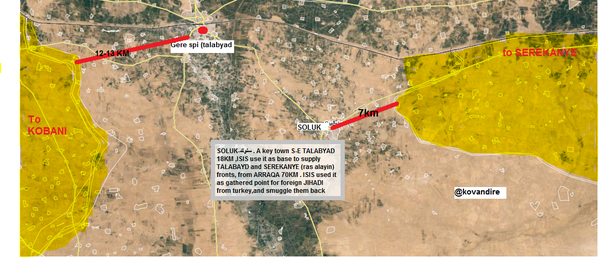- 06 Jun 2015 07:27
#14565234
The defeat by attrition argument has been around for a while and I feel that it is flawed.
1. The fact that Assad himself belongs to a minority group doesn't tell us much in terms of the war-related demographics. We know that it's not just the Alawites who support the government - many Christians, Twelvers, Druze, and some Sunni Arabs also support it. Together, they may very well add up 40% of Syrians. Kurds are another 10%, and they don't fight the government.
2. The government side is a lot better armed than all of its opponents, and therefore able to inflict a lot more casualties on the enemy than vise versa in battle.
3. In war, it doesn't matter as much the raw number of people who support you, compared to their motivation and stubbornness. In this too, the government side probably has an advantage over many of the rebels (except the most crazy ones), because for the Syrian minorities this is likely the war for survival. If the government falls, they're all fucked, thus their motivation should be very very high, especially so when fighting for their home turf - but not only.
4. Finally and probably most importantly, since when is this a war limited to Syrians only? There are tens of thousands of foreigners fighting on each side, coming from all over the world, with more ready to be introduced upon necessity as Iran recently indicated. Probably up to 20% of the fighters on both sides are foreigners, if not more. Comparing the intra-Syrian demographics tells us nothing about the amount of foreign fighters available to both sides, so how can it tell us much about the future of this war?
Did I convince you that this argument is weak?

If this becomes a war of attrition, Assad loses though as he's in the demographic minority. Particularly considering the reports that 30% of Alawite fighting-age males have died during the war.Has this not been a war of attrition for a while already?
The defeat by attrition argument has been around for a while and I feel that it is flawed.
1. The fact that Assad himself belongs to a minority group doesn't tell us much in terms of the war-related demographics. We know that it's not just the Alawites who support the government - many Christians, Twelvers, Druze, and some Sunni Arabs also support it. Together, they may very well add up 40% of Syrians. Kurds are another 10%, and they don't fight the government.
2. The government side is a lot better armed than all of its opponents, and therefore able to inflict a lot more casualties on the enemy than vise versa in battle.
3. In war, it doesn't matter as much the raw number of people who support you, compared to their motivation and stubbornness. In this too, the government side probably has an advantage over many of the rebels (except the most crazy ones), because for the Syrian minorities this is likely the war for survival. If the government falls, they're all fucked, thus their motivation should be very very high, especially so when fighting for their home turf - but not only.
4. Finally and probably most importantly, since when is this a war limited to Syrians only? There are tens of thousands of foreigners fighting on each side, coming from all over the world, with more ready to be introduced upon necessity as Iran recently indicated. Probably up to 20% of the fighters on both sides are foreigners, if not more. Comparing the intra-Syrian demographics tells us nothing about the amount of foreign fighters available to both sides, so how can it tell us much about the future of this war?
Did I convince you that this argument is weak?






















 Again that's just nowhere near the same as being threatened with genocide or ethnic cleansing. Islamism is an ideology, not a religion or ethnic identity. Should the war end in Assad's victory, any former Islamist has the option of simply ceasing to be an Islamist or keeping his Islamism to himself - and he'll be fine. An Alawite, regardless of his level of support for the government, cannot cease being an Alawite, and should Assad lose, he will most likely not be fine at all. That is a decisive difference.
Again that's just nowhere near the same as being threatened with genocide or ethnic cleansing. Islamism is an ideology, not a religion or ethnic identity. Should the war end in Assad's victory, any former Islamist has the option of simply ceasing to be an Islamist or keeping his Islamism to himself - and he'll be fine. An Alawite, regardless of his level of support for the government, cannot cease being an Alawite, and should Assad lose, he will most likely not be fine at all. That is a decisive difference.


 - By skinster
- By skinster - By Tainari88
- By Tainari88